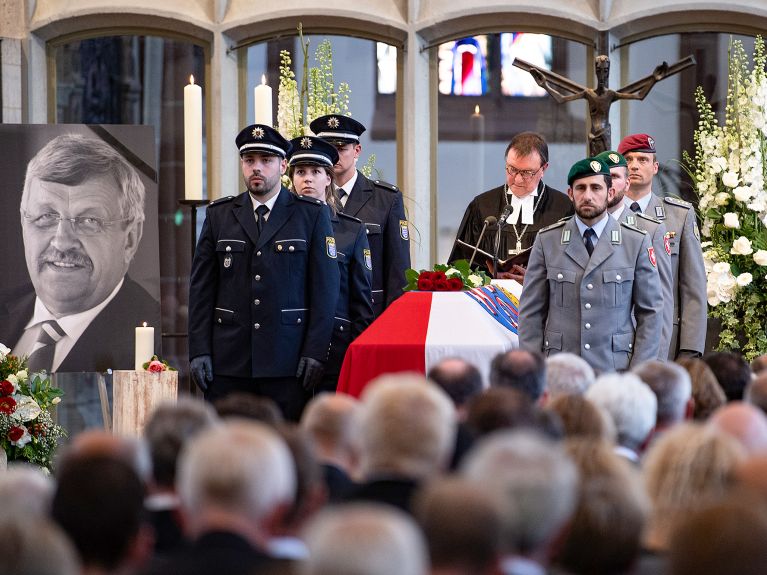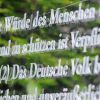This murder has shaken Germany
The politician Walter Lübcke was shot. Investigators suspect a right-wing extremist motive. Here the most important facts and reactions.

What happened?
On the night of June 2 the CDU politician Walter Lübcke suffered a gunshot wound to the head on the terrace of his house near Kassel (Federal State of Hesse) and was discovered and died a short time later. Lübcke was President of the District of Kassel. In some federal states the District President is the head of a state authority, who acts as a coordinating official between ministries and municipalities.
What indicates a political murder?
At first, the police assumed that the perpetrator came from the private sphere of the 65-year-old politician. Then possible political motives came into focus. By advocating German asylum policy and the rights of refugees, Lübcke had made enemies of right-wing extremists.
What is known about the suspect?
On June 15, alleged right-wing extremist Stephan E. was taken into custody. He has a criminal record. The Federal Attorney General’s Office has classified the murder as a political assassination with right-wing extremist background. The previous life of the suspect and his publicly expressed opinions constitute grounds for this. Stephan E. has admitted the killing, members of the German parliament said on Wednesday following a special session of the interior affairs committee.
Why has the Federal Prosecutor General taken over the case?
The seriousness with which the German judiciary takes this case is shown by the fact that the highest investigative authority has taken over the investigation. The Federal Attorney General prosecutes acts of terrorist groups. He can institute investigations against individual perpetrators if the case has "special significance".
Is a terrorist network behind Lübcke’s murder?
The Federal Attorney General's Office so far has no evidence so far that a terrorist group is behind the murder. But German police have made two more arrests in the case. The announcement confirmed earlier media reports that said the arrests related to those who provided the weapon used by the main suspect, Stephan E, a right-wing extremist who has admitted murdering Luebcke outside his home in Kassel on June 2.
The mayor of Cologne, Henriette Reker, the mayor of Altena, and other German politicians have also received death threats. It is currently unclear whether these have any connection with Lübcke’s murder.
What reactions have there been?
The Federal President Frank-Walter Steinmeier has said: "The very suspicion that in a country with this history, someone who worked for democracy has been executed in a political murder, allegedly committed by a convinced right-wing extremist, and that some in the network have applauded this crime, is terrible and intolerable."
The Federal Chancellor Angela Merkel announced a fight against violent neo-Nazis "no holds barred".
The Interior Minister Horst Seehofer wants to take much stronger action against right-wing extremism and "give the rule of law more bite". In addition, he wants to examine whether enemies of democracy can have their constitutional rights revoked.
The Foreign Minister Heiko Maas spoke of a "tragedy for our democracy" if the suspicion is borne out that the case has a right-wing extremist background. Maas has called for protests. "Show that we are more than the right-wing extremists, the anti-Semites, the splitters."
Three weeks after Lübcke's murder, around 2,000 people demonstrated in Kassel against right-wing extremism and violence. There were also protests in Berlin and other cities. In Lübcke's hometown of Wolfhagen several hundred people gathered for a vigil.

© www.deutschland.de, with material from dpa and DW
You would like to receive regular information about Germany? Subscribe here:

